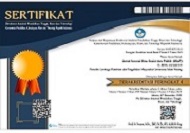Multikulturalisme Desa Di Bali Dalam Kontrol Negara: Implementasi Dana Desa bagi Kegiatan Lintas Budaya di Badung dan Buleleng
DOI:
https://doi.org/10.33474/jisop.v1i2.4808Keywords:
control, budget, multiculralism, stateAbstract
This study examines the implementation of village funds related to the development of cross-cultural activities in Badung and Buleleng. Whether the pattern is instructive translation of sloganitic deconcentration tasks or participatory institutionalization that sets out the need for cross-cultural issues in the village. The Tamatea Study (2006), Parker (2017), and Gottowick (2010) discuss multiculturalism as the nature of local wisdom which is described as responding to people's daily problems. Another study, Kwon (2018) and Selenica (2018) looked at multiculturalism in the perspective of intercultural conflict. This research takes a different position from previous research by criticizing the construction of state control over multiculturalism that runs at the grassroots. Control construction is seen from the management of village funds for cross-cultural activities that are operationalized through guaranteed equality of ethnic and religious groups. The research paradigm is non-positive with case studies. Data collection methods utilize observation, interviews and documentation. The perspective used is interpretive with the theory of discourse. Research results show that state control is firmly embedded in the development of multiculturalism in villages. The nature of control is meaningfully driven, administrative control of budgeting has the potential to have an inhibiting effect on the development of the potential of the village concerned, including the development of multiculturalism activities in the village. Such as overlapping regulations on financial accountability, lack of socialization of regulations and assume that village human resources have understood every multicultural development program (especially the deconcentration program), injustice attitude views the potential of the village and bias behavior rules that are biased. Various attitudes are often shown by vertical government officials, such as sub-districts, offices (OPD), and ministries, which are counterproductive to oversee the development of the attitude of the development of multiculturalism in the village. Villages are forced to translate multicultural development programs that are trapped in administrative accountability which in reality compartmentalize the potential of the resources within.References
Buku
Al-Makassary, Ridwan (2007) “Multikulturalisme: Review Teoritis dan BeberapaCatatan kritisâ€, dalam Hak Minoritas: Multikulturalisme dan Dilema Negara Bangsa, Ed. Mashudi Noor Salim et. al. Jakarta: Intereksi Foundation.
Ardhana, I Ketut, dkk (2011) Masyarakat Multikultural Bali; Tinjauan Sejarah, Migrasi dan Interaksi. Pustaka Larasan & Jurusan Sejarah Fakultas Sastra Universitas Udayana.
Gutomo, Tomi (2008) Bermain Main dengan Kematian: Petani Jawa Tengah. Kanisius Yogyakarta.
Laclau, Ernesto (2010) Hegemony and Socialist Strategy: Towards a Radical Democratic Politics. Paperback.
Picard, Michel (1990) Bali: Cultural Tourism and Touristic Culture. Singapore: Archipelago Press.
Moleong, Lexy J. 2007. Metodologi Penelitian Kualitatif: Bandung: Rosdakarya.
Jurnal
Ahimsa-Putra, Heddy Shri (2007) Paradigma, Epistemologi, dan Etnografi dalam. Antropologi. Makalah disampaikan dalam seminar di UNAIR Surabaya.
Callahan, Ewa (2005) Interface design and culture. https://doi.org/10.1002/aris.1440390114.
Goodenough, Ward. H. (1967) Right and Wrong in Human Evolution. https://doi.org/10.1111/j.1467-9744.1967.tb01096.x
Gottowik, Volker (2010) Transnational, Translocal, Transcultural: Some Remarks on the Relations between Hindu-Balinese and Ethnic Chinese in Bali. Source: Sojourn: Journal of Social Issues in Southeast Asia, Vol. 25, No. 2 (October 2010), pp. 178-212. Published by: ISEAS - Yusof Ishak Institute. Stable URL: https://www.jstor.org/stable/41057096. Accessed: 04-02-2019 09:58 UTC.
Kwon, Ronald (2018) Multiculturalism in the Age of Immigration: Diversity, Cultural Rights, and Potential Conflict. https://escholarship.org/uc/item/1c2775j.
Pageh, I Made. Dkk. 2014. Analisis Faktor Integratif Nyama Bali-Nyama Selam. DOI: 10.23887/jish-undiksha.v2i2.2178.
Parker, Lyn (2017) Intersections of Gender/Sex, Multiculturalism and Religion: Young Muslim Minority Women in Contemporary Bali. Asian Studies Review, 41:3, 441-458, DOI: 10.1080/10357823.2017.1332004.
Selenica. Ervjola (2018) Education for whom? Engineering multiculturalism and liberal peace in post-conflict Kosovo, Southeast European and Black Sea Studies, DOI: 10.1080/14683857.2018.1474583 Southeast Asian Studies, 48 (1), February 2017.
Tamatea, Laurence (2006) Gandhian education in Bali: globalisations and cultural diversity in a time of fundamentalisms. ISSN 0305-7925 (print)/ISSN 1469-3623. British Association for International and Comparative Education, DOI: 10.1080/03057920600741248.
Surat Kabar
Bali Express 2 Mei 2018 diakses pada https://baliexpress.jawapos.com/read/2018/ 05/02/69890/soal-rastra-pegayaman-disalahkan-dinsos-perbekel-ngotot-tak-salah, pada 22 September 2019.
Downloads
Published
How to Cite
Issue
Section
License
.


_-_Copy.jpg)





